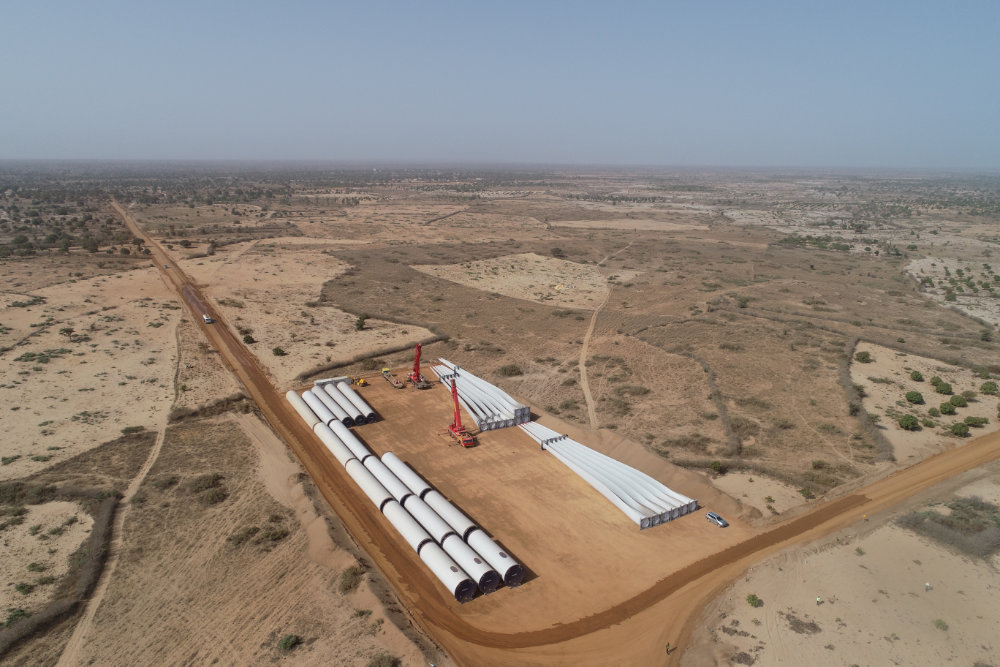Over the past few years, the energy sector has woken up to the need for diversity in its workforce and while the oil & gas part of the industry has some catching up to do – just 22% of employees are female, for example [1] – the renewable power segment is further along the curve, with females representing just under a third of its staff, including 28% in STEM (science, technology, engineering and maths) roles. Yet even here, it’s clear that there is still some way to go in terms of creating a genuinely inclusive industry that attracts the best talent, regardless of their background, ethnicity or gender.
It’s a point well recognised by Lekela Power (Lekela), Actis’s pan-African renewable power platform. With a female Chair of Lekela and two female executive directors, the business has worked hard to ensure the leadership team more closely reflects the gender mix of the industry so far and to create role models for its own employees as well as others in the sector.
While setting the tone from the top is vital, it’s only part of the story. Creating a genuinely inclusive environment that attracts the best candidates and retains talented people throughout the organisation requires a targeted approach and a concerted effort. That’s one of the reasons Lekela established a diversity and inclusion working group with members drawn from a range of staff, including senior leaders, across its three locations – London, Senegal and Egypt. Meeting twice a month, the group helps identify areas on which to focus and establishes initiatives to drive improvements.
The group’s work has led to a number of new programmes, including ensuring that all new joiners undergo diversity and inclusion training as part of their induction and that all Lekela staff complete unconscious bias training. “Involving every employee is very important,” says Romina Floris, Vice President, Human Resources at Lekela. “We want to drive diversity and inclusion throughout the organisation. It now feels that this is part of Lekela’s DNA.”
As part of this effort, Lekela is undergoing a review of a number of its policies, with changes already made to maternity and paternity leave to create a more flexible and family-friendly framework. The company has also designed a recruitment process to draw in applicants from as wide a net as possible. Job descriptions must now capture all protected characteristics and groups of people. Recruitment consultants are specifically requested to go out of their way to find female candidates and shortlists have to include a good balance of prospective employees.
We want to drive diversity and inclusion throughout the organisation. It now feels that this is part of Lekela’s DNA.
Romina Floris, Vice President, Human Resources at LekelaHowever, Lekela is not content to stand still when it comes to diversity and inclusion and has ambitions to become a beacon for talent of all kinds. To communicate its progress both internally and externally, the company is currently formulating specific goals and targets to measure success and help identify gaps where improvements could be made.
And Lekela’s commitment to inclusion stretches far beyond its own organisation. Recognising that part of the industry’s challenges with diversity are structural, the company is involved in a number of external initiatives established to attract a more diverse workforce to the energy industry.
An active member of WISE, a UK-based campaign group seeking to increase female participation in science, technology and engineering, Lekela is also in the process of setting up a pilot programme in Senegal together with the International Finance Corporation’s Energy2Equal initiative. This initiative aims to expand women’s access to jobs, leadership positions and entrepreneurial opportunities in the renewable energy space. Engaging directly with women in local communities, village chiefs and religious leaders, the Lekela-run programme will seek first to understand the barriers preventing women from participating in the renewable energy sector and then identify ways of addressing these issues.
“We really want to understand how cultural, technical and educational factors may be hampering women’s interest and progress in the renewable power sector,” explains Jennifer Boca, Head of ESG at Lekela and the initiative’s leader. “We can only do this if we get as much information as we can from the ground up.”
We really want to understand how cultural, technical and educational factors may be hampering women’s interest and progress in the renewable power sector
Jennifer Boca, Head of ESG at Lekela and the initiative’s leaderAnother initiative Lekela is driving to support women from the local community in Taiba N’Diaye, is the Mbayenne marketplace. The newly built marketplace creates a safe place for local women to trade, as well as further jobs, thereby enhancing livelihoods. Previously, the women in Taiba traded their produce from the side of the road.
